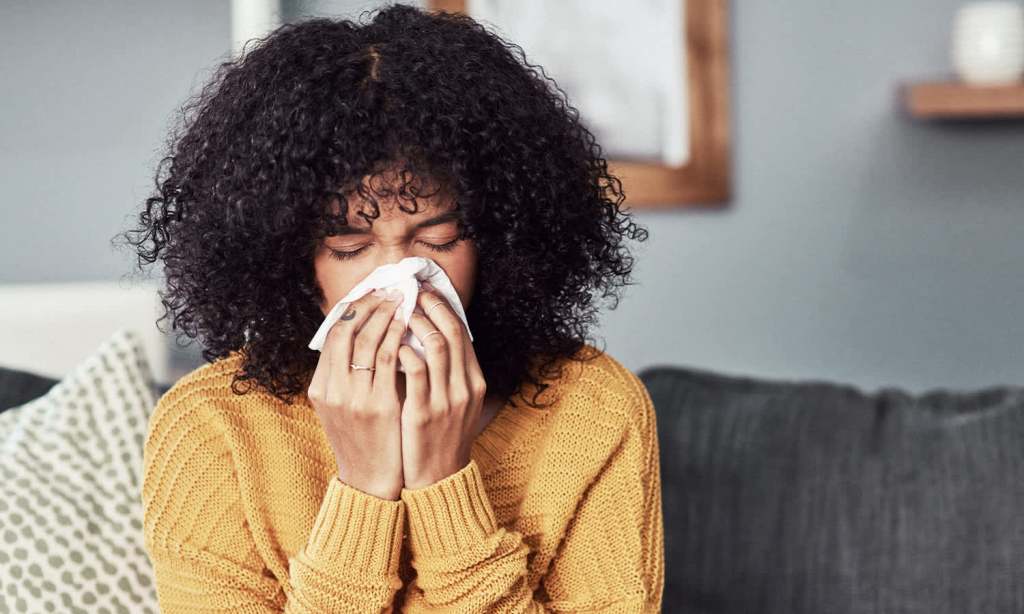Australia has managed to see off the worst of the COVID-19 pandemic, at least for now, with heavy lockdowns, social distancing, mask-wearing and, of course, a high vaccination rate.
While all of the above work to protect us from COVID, they’ve also had the unintended consequence of managing to all but wipe out most other common infections like cold and flu.
However, much like COVID, experts are predicting that while these diseases are gone for now, they could return with a vengeance as states and territories open back up and we get back to doing what we love best: hanging out in crowded venues, licking the faces of strangers.
In all seriousness, experts are now warning of a wave of ‘summer cold’ readying to sweep the nation as we all open back up. Here’s what you need to know and what you can do about it.
Summer Cold
Colds tend to be seasonal, occurring in the colder months and peaking around August. However, University of Queensland virologist Professor Ian Mackay recently told the Sydney Morning Herald that his team has identified patterns in respiratory viral infections that counter this accepted trend.
While the flu has all but been wiped out (more on that later), rhinoviruses that cause the common cold and respiratory syncytial viruses have actually been spiking in the warmer months since the COVID pandemic started.
“Clearly they’re not seasonal. It’s more about how much of the population’s immunity is up to speed with defending against them … because when it’s low these viruses can do what they like, whenever they like,” Mackay said.
Summer colds are caused by another type of virus called enteroviruses. These cause similar symptoms to your standard rhinovirus, runny rose, feeling run down, coughing, and sneezing etc, however, they can also cause fever, sore throats, diarrhea, and even skin rashes.
The chances of catching a cold in the summer are generally much lower but it does happen. That’s because these enteroviruses actually thrive in warmer weather, unlike the common cold viruses.
How Bad Could It Be?
Virologists have been warning for some time now that the post-lockdown era could be full of illness as we emerge into our new freedoms. This is partly due to the fact that we’ve not been catching other viruses, and therefore strengthening our immune system, during the lockdowns but it’s also partly due to the fact that we’ve been avoiding our flu shots as we focus on getting COVID jabs.
A particularly bad flu season is a little way down the line, as the virus takes time to recirculate and build back up to the numbers we typically see, but it is coming.
The deputy director of the WHO collaborating centre for reference and research on influenza, Professor Ian Barr, has said that he expects 2023 to be a big year for the flu.
“We’re sitting ducks, to be frank, but it’s a matter of when that will eventuate,” he said.
As we’ve now had two seasons of virtually no flu, when it comes back, it’s going to be much harder for our bodies to deal with. Barr says that, with travel still uncertain in 2022, the following year will be more severe as we do away with quarantine for international travel.
In Europe, where COVID restrictions have largely been relaxed, they’ve been hit hard with a wave of “super cold” that has seen people off of work for several days as their bodies grapple with the unfamiliar new illness.
Of course, they’re now going into winter, which is only likely to make the situation worse. Thankfully, Australia is now entering summer which should stave off the worst of it but there are still cautions to be vigilant about the disease as we open up.
How to Not Get Sick
Rhinoviruses are apparently more virulent and hardy than coronaviruses. While our public health measures have managed to keep cases mostly under control, the common cold has still been spreading amongst us during lockdowns. Granted, it’s been limited in its spread, which is why most of us haven’t been ill recently, but it’s still out and about in the community.
Rhinoviruses spread through air particles, so, coughing and sneezing. Keeping your mouth covered when you sneeze or cough, coughing into your elbow, and wearing a mask are all good ways to ensure that the spread of those viruses is limited.
There’s not a whole lot you can do to stop someone coughing or sneezing on you, presumably by accident, but making sure your immune system is up to scratch by getting good sleep and eating well will help.
Enteroviruses spread in much the same way but they can also be picked up through fecal-oral transmission. That means washing your hands after going to the bathroom and when dealing with nappies is crucial in ensuring you don’t pick these up.
When the inevitable happens, make sure you get lots of rest and drink plenty of fluids as this time around new illnesses are likely to be much tougher than we’re used to.
Read more stories from The Latch and subscribe to our email newsletter.

